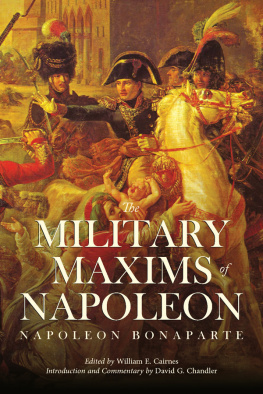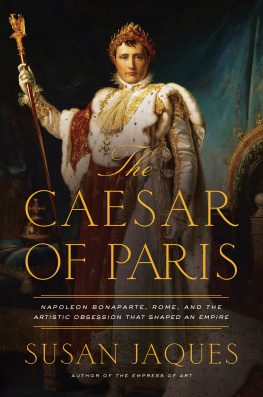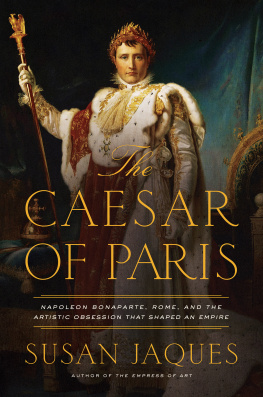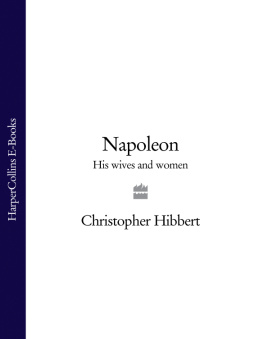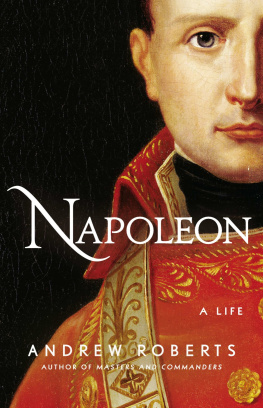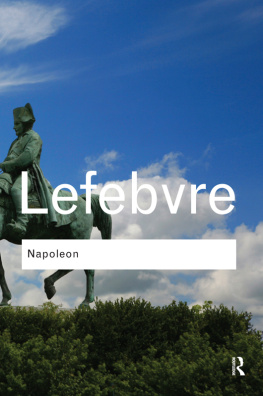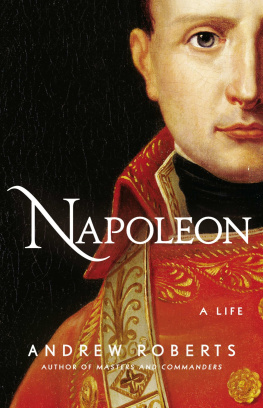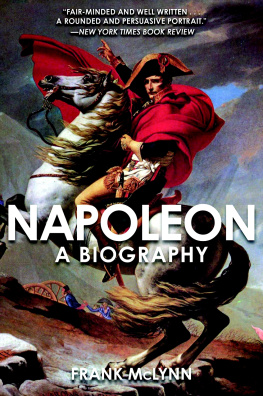THE CAREER OF THE GREAT Napoleonic dynasty is without a parallel either in ancient or modern times. The universal judgment of mankind has long since decided, that its founder, Napoleon I., was in every respect as great a hero, and probably a greater, than Alexander, Caesar, or Charlemagne, the three most renowned representatives of ambitious and martial daring in the worlds history. It has been conceded that the variety and extent of Napoleons abilities, both as a commander, a legislator, and a ruler, place him above all his rivals. It is also granted that the splendor of his victories, the extent of his conquests, and the grandeur of his elevation, exceeded theirs in an eminent degree.
But in addition to all these elements of superior greatness, it must be admitted that the family of Napoleon I. add an unequal attraction and halo to his career. Neither of his illustrious rivals could boast of a wife as graceful and bewitching as Josephine, or as high-born and nobly descended as Maria Louisa. None of them possessed a sister who, like Pauline, deserved the distinction of being called the most beautiful and fascinating woman of her time. None could point to a Caroline who combined beauty, intrepidity, and talent, in so pre-eminent a measure. None of them could claim brothers as sagacious as Joseph, as gallant as Murat, as romantic as Jerome, as capable as Lucien. None of these rival conquerors could point to as many relatives who were sovereign princes and princesses, and who owed their dizzy eminence to his own powerful arm. And none of them had a successor equal in talent, and in desperate, successful daring, to Napoleon III. It must be admitted, also, that the present Emperor of the French is the second personage in point of consequence, celebrity, and interest, among all that illustrious company who bear the name and share the glory of the Bonapartes; and that his career possesses an importance and splendor, inferior only to that of the great head of the family himself.
Charles Louis Napoleon Bonaparte was born at Paris on the 20th of April, 1808. He was the third and only surviving son of Louis Napoleon, the King of Holland, and Hortense, the daughter of the Empress Josephine, by her first husband, the Viscount de Beauharnois. The infant prince first saw the light at one oclock, and the Chancellor of the Empire immediately wrote to the Emperor, the Empress, and to Louis Napoleon, informing them of the happy event. At five oclock in the evening the act of birth was received by the Arch-Chancellor, assisted by his eminence, Regnault de St. Jean dAngely, the minister of state, and secretary of the imperial family. Salvos of artillery announced the happy event along the whole line of the grande arme, throughout the entire extent of the empire, from Hamburg to Genoa, from the Danube to the Atlantic. This was an honor which fell to the lot of only two members of the imperial family, Louis Napoleon, and the King of Rome; for they only were born under the imperial regime.
Notwithstanding these and other testimonials of the legitimacy of Louis Napoleon, it has been gravely asserted by authorities of no mean importance, that not a drop of Bonaparte blood flows in his veins; and that he is, in reality, the son of the favorite lover of Hortense, Admiral Verhuel, a Dutch nobleman connected with the court of her husband, while king of Holland. It is well known that the marriage between Louis Bonaparte and Hortense was a compulsory one, brought about by the tears and persuasions of Josephine. Napoleons Minister of Police, the celebrated Fouch, boldly asserts in his Memoirs, that Hortense was then already pregnant by the Emperor; that the latter first determined to marry her immediately to Duroc; that Duroc positively refused, being engaged to another lady whom he loved; and that then Louis was absolutely commanded to accede to a union with the daughter of Josephine. Subsequent events seemed indeed to give the color of truth to these assertions. From the day of that union, the young couple never pretended to entertain the least affection for each other. From January the 20th, 1802, the date of the marriage, down till September, 1807, the period of their separation, they never resided together more than four months, and that at very remote intervals. Some months after their final separation, and after Hortense had taken up her permanent residence in Paris, Louis Napoleon Bonaparte was born. The strongest proof which supports the assertion of the illegitimacy of his birth, is his own peculiarly apathetic Dutch temperament; a temperament such as no other Frenchman ever possessed since the national existence began. To this may be added the total want of any resemblance in his features to the Napoleon family, and their very considerable similarity to those of the courtly and accomplished Dutch Admiral already referred to.
The family of Hortense and Louis Bonaparte consisted of the eldest son, called Napoleon Louis Charles, born in 1802, who died in 1807; the second son named Napoleon Louis, who was born in 1804, was baptized by Pope Pius VII., and who died in 1831; and the subject of this history. The family register of the Bonapartes which contained the evidence of the right of the succession, had been deposited in the keeping of the Senate. By the Plebiscite of the year 1804, the children of the brothers of Napoleon I., in the absence of his own direct heirs, were entitled to the succession to the throne in the order of their ages. Accordingly, at the period of his birth, Louis Napoleon was regarded as the second heir of the empire, and considerable interest clustered around his person from his earliest years, as one who might perhaps be reserved by the mysterious vicissitudes of fate, for a brilliant or at least a checkered destiny. He was baptized in 1810 by Cardinal Fesch, with great splendor, at Fontainbleau, the Emperor and Maria Louisa themselves acting as sponsors.
His earliest years were spent in his mothers private residence in the Rue Cerutti, now Lafitte, in Paris. She was his first preceptor; and she was well fitted for the task. Hortense was a woman of great intelligence, refinement and taste. Herself educated by the accomplished Madame Campan, she possessed a well-cultivated mind. She had, when quite a girl, distinguished herself in the celebrated school dEcouen, by her superior talents for music and drawing. She was learned, witty, and exceedingly attractive in her manners. In a word, she was worthy to be the daughter of Josephine. She reared her two sons with great strictness; and the severity of the training to which she subjected them, was intended both to enlarge and cultivate their minds, as well as to strengthen and develop their bodies.
Napoleon himself took a deep interest in the progress of the boys. He frequently sent for them, while he was breakfasting hastily in his cabinet, in order to converse with them, to ascertain their progress in learning, and to scrutinize the displays or evidences which they might give of intelligence and talent. Not even the subsequent birth of the king of Rome seemed to diminish the intense interest which Napoleon felt in the children of Hortense. His sagacious mind well appreciated the uncertainties of human life, and the possibility of the death of his direct heir. There is ample evidence to prove, that both in prosperity and misfortune, until the end of his marvellous career at St. Helena, the great conqueror regarded the fate of the two sons of Hortense with solicitude, and watched their career with a vigilant eye.


